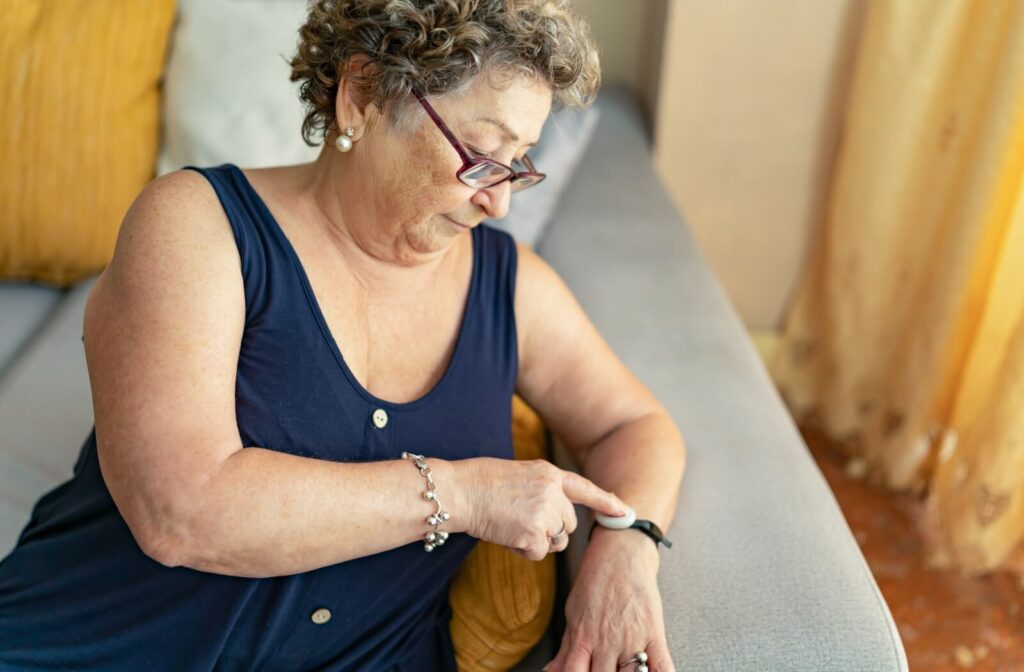As our loved ones age, considering their safety becomes a top priority. While Life Alert has been a popular choice for many older adults and their families, exploring alternatives can offer a broader range of features to personalize individual needs. Let’s delve into some noteworthy alternatives that provide peace of mind, independence, and safety. The 3 alternatives that will be addressed are:
- Medical Guardian
- MobileHelp
- Bay Alarm Medical
What Is Life Alert?
Life Alert provides personal emergency response and home medical alert systems. Users can call the company’s on-site personal emergency monitoring center by pressing the help button on an emergency pendant, wristband, or device placed in the shower or on the bathroom wall. Life Alert will contact the police, paramedics, fire department, doctor, or specific friends and family based on the individual’s circumstances.
Benefits of Medical Alert Systems
Medical alert systems have been a vital innovation in personal health, especially with older adults with health conditions that could lead to a medical emergency. These systems allow users to embark on a sense of independence, with peace of mind knowing that they can live alone and access immediate help if needed.
A medical alert system’s real-time monitoring and communication can significantly reduce response times in emergencies, which can save lives by providing rapid care.
Medical alert systems can provide rapid access to emergency services and constant user monitoring, improving the health outcomes of older adults. With Life Alert, you can connect to a 24-hour personal emergency monitoring service that answers your calls from home or while you’re on the go with just a button, pendant, or home base unit.
The calls will be routed to the company’s emergency monitoring service dispatcher, who will evaluate the situation and contact 911, nearby emergency responders, or family members on your behalf. In the event of an emergency and you are unable to speak, the dispatchers will assume you need assistance and send help to your location.
Medical Guardian
Medical Guardian is a company that specializes in medical alert systems, providing both in-home and on-the-go systems. They offer a variety of devices tailored to different lifestyles. Their features include:
- User-friendly systems that are designed with easy-to-use interfaces and large buttons for visibility.
- No monthly fee, making this option more affordable for individuals on a budget.
- Dispatchers respond quickly and can communicate in multiple languages.
Some features that may need some improvement include:
- Devices may not function well in every situation (some may not be compatible with cell service, for example).
- The process of canceling the service may be difficult.
MobileHelp
MobileHelp provides cellular-based medical alert systems, making sure that individuals are still protected, even on the go. Their features include:
- GPS tracking: This enables precise location monitoring.
- Wellness features: These can include activity tracking and medication reminders.
- No long-term contracts: This allows users to cancel services without being committed to a long-term contract.
Some things to consider with this option:
- Monthly monitoring fees tend to be more on the expensive side of the spectrum, which can impact those on a budget.
- With a limited range for in-home systems, users must consider that it adequately covers potential signal issues.
- GPS tracking comes with an additional cost, which can be limiting to tighter-budget individuals.
Bay Alarm Medical
Bay Alarm is widely known for its affordable and reliable services. They provide medical alert systems with 24/7 monitoring and quick response times. Their features include:
- Waterproof devices: These allow users to wear them in most environments
- Fall detection option: Great for added safety, automatically alerting dispatches if a fall is detected.
- Flexible plans: This allows individuals to choose from various plans based on their needs for both services and pricing.
Some factors to think about:
- There is an additional fee for fall detection, potentially making this less accessible for users.
- The more portable devices have a limited mobile range, which may be a barrier to performing tasks outside the home.
- It does not currently offer integration with smart-home devices, which may be a drawback for a more interconnected safety strategy.
Choosing a Medical Alert System That’s Best for You
Choosing between medical alert system alternatives involves considering the individual preferences and needs of the user.
We recommend starting by assessing your loved one’s specific needs. Do you require fall detection technology or need GPS functionality? Is the system easy and accessible to use? What is your budget? Does the system work with your lifestyle? We also recommend you ask for recommendations and read reviews from healthcare professionals or trusted sources.
From traditional medical alert systems to innovative smart-home integrations, the market offers diverse options to make sure that our loved ones can lead safe lives with a sense of independence. If you or your loved one need guidance on the next steps to feeling safe and at peace, please contact us or schedule a tour at Tylers Mill Senior Living!



